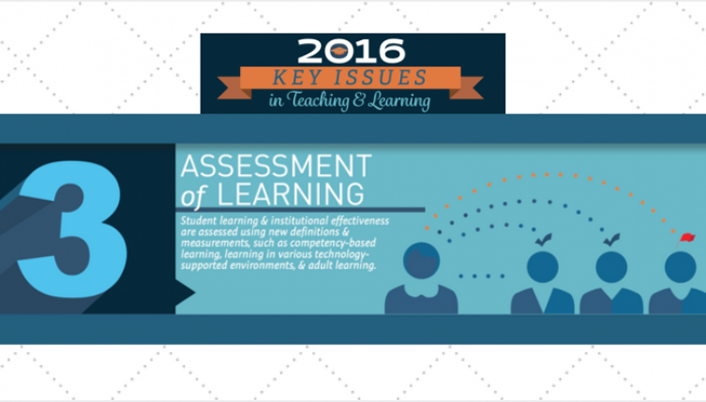
Business icon Peter Drucker is famously credited for saying ‘If you can’t measure it, you can’t manage it.’ Yet we all know that many aspects of education are either so qualitative in nature, or specific to a given scenario that precise measurement is either impossible or lacks critical context — leading to woefully-inaccurate or incomplete results.
So while that adage may work well in some parts of the corporate world, over the years many have debated its merits in an academic setting, with some arguing in favor of measurement as early as the K-12 level, and others against.
Assessment remains an extremely hot topic at all levels of education, from approaches to formative assessment in K-12 classrooms, to evaluating efficacy of higher education degree programs, and teacher/faculty professional development. Assessment also looms large in system-wide strategic planning efforts, where data, analytics and surveys shed light on a variety of areas, such as student learning outcomes, institutional policies and stakeholder opinions. What isn’t widely argued is that measurement of some kind is essential in order to ensure that certain academic, professional and institutional milestones are reached.
In higher ed, the broader community remains a rich resource on such matters. For this reason, EDUCAUSE Learning Initiative annually seeks input from the community to determine key issues in post-secondary teaching and learning. These key issues serve as the framework, or focal points, for organizational discussions and programming throughout the coming year. More than 900 community members voted on the 2016 key issues, with ‘Assessment of Learning’ rounding out the top three.
It’s described in the downloadable ELI Key Issues infographic as follows:
Student learning and institutional effectiveness are assessed using new definitions and measurements, such as competency-based learning, learning in various technology-supported environments, and adult learning.
In determining whether or not a teaching method, technology, or academic program is effective, what questions are asked, which stakeholders are engaged, and what data is available figure prominently. Often it’s difficult to know exactly where to begin.
Two recent ELI publications elaborate on the theme of assessment from an institutional perspective, and a pedagogical standpoint:
- 7 Things You Should Know About Institutional Self-Assessment
Assessment can (and should) occur at individual, program and system levels. Institutional leaders can determine the value and potential ROI in both new and existing technology projects, in order to effectively evaluate tools and services. - 7 Things You Should Read About Innovative Approaches to Instructional Design
A variety of emerging models and tools exist for instructional design and assessment; this brief highlights recent resources that faculty members and others involved in the curriculum design process may find especially useful.
Several recent Transforming Higher Ed blog posts offer additional insight on the topic of assessment. Note that the first three posts below are part of a series by Bernard Bull that focuses on various aspects of higher ed assessment. (Bull currently serves as Associate Vice Provost of Academics & Associate Professor of Education at Concordia University.)
- 5 Technologies Impacting the Future of Learning Assessment
- 5 Ways Higher Ed Learning Assessment is Changing
- The Benefits of Learning Assessment in Faculty Development
- ELI Key Issues Series: Faculty Development Still Prominent, But Requires Effective Evaluation
Kristi DePaul of Founders Marketing provides editorial support and regular contributions to the Transforming Higher Ed column of EDUCAUSE Review on issues of teaching, learning, and edtech.
